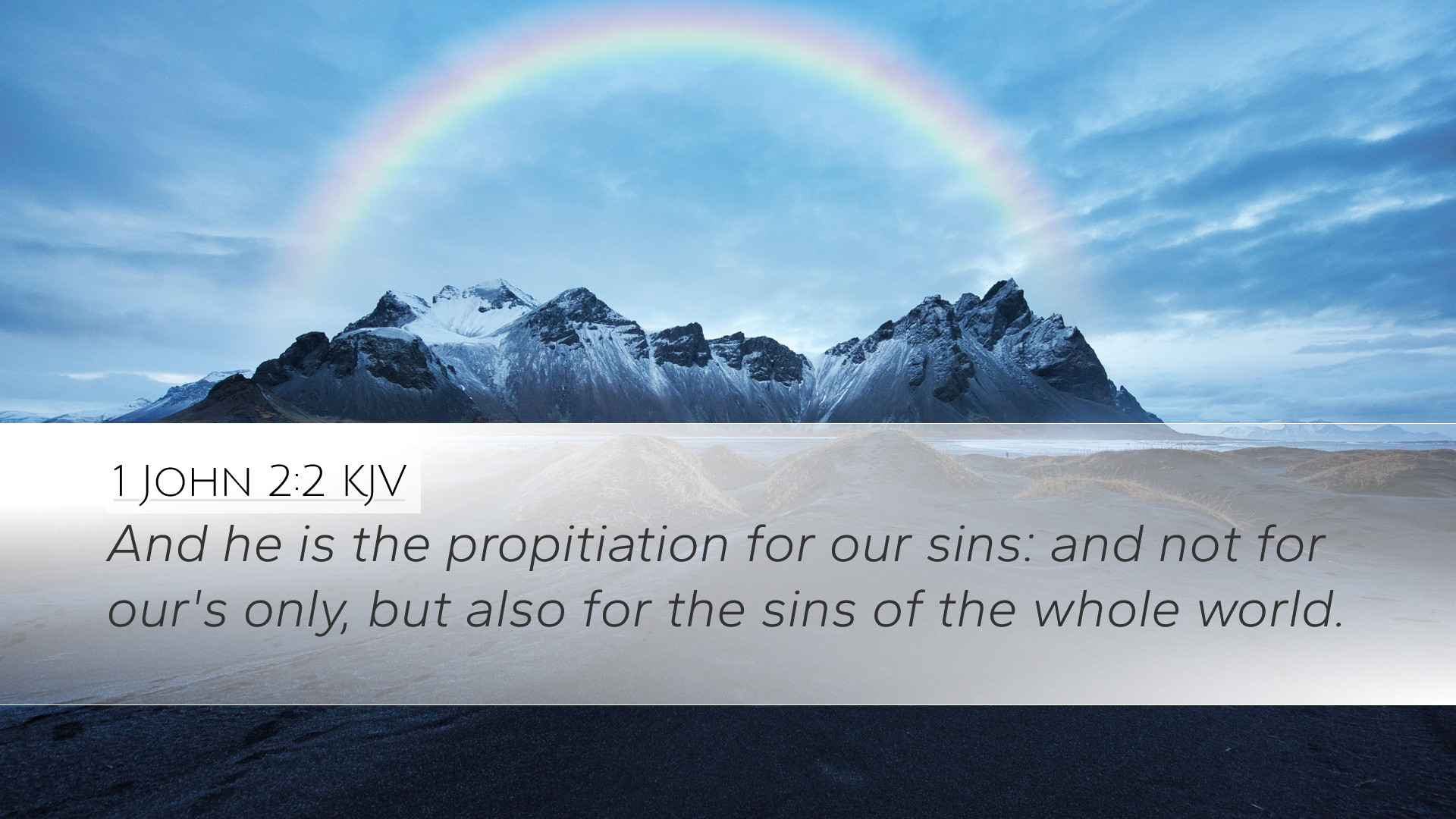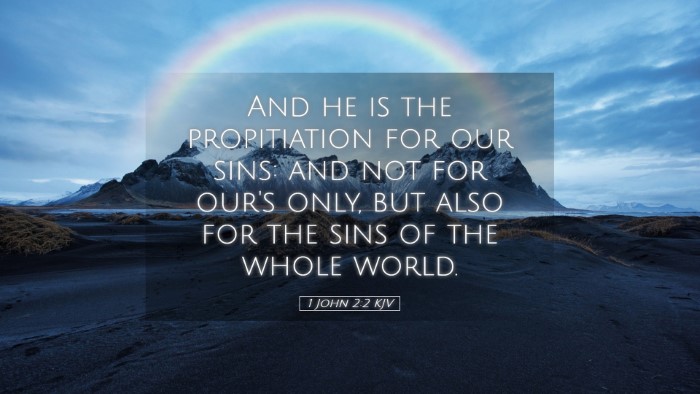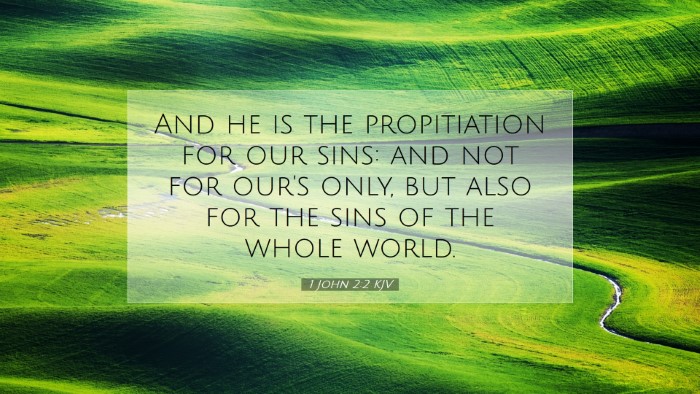Commentary on 1 John 2:2
Verse: 1 John 2:2 - "And he is the propitiation for our sins: and not for ours only, but also for the sins of the whole world."
Introduction
The verse of 1 John 2:2 encapsulates a profound theological truth concerning the atoning sacrifice of Jesus Christ. In this single verse, the epistles declare the nature of Christ’s propitiation and its implications for humanity. This commentary seeks to draw on insights from public domain sources to offer a comprehensive understanding of this verse.
Exegesis of the Text
Propitiation Defined: The term "propitiation" translates from the Greek word “ἱλασμός” (hilasmos), indicating a means of appeasing divine wrath and securing favor. Albert Barnes highlights that it is essential to grasp this term in its sacrificial context, where Christ's death satisfies the requirements of divine justice.
The Scope of Christ’s Sacrifice: The phrase "not for ours only" signifies that the redemptive work of Christ transcends the immediate audience of John's letter. Matthew Henry elaborates on this, noting that Christ’s atonement reaches beyond believers of the early church to encompass all of humanity, indicating that the potential for salvation is universal, though actualization depends on individual faith.
Theological Implications
- Universal Atonement vs. Limited Atonement: This verse has stirred considerable theological debate between universalists and proponents of limited atonement. Adam Clarke asserts that while Christ’s sacrifice is sufficient for all, effective only for those who believe, it emphasizes the openness of God’s grace towards humanity.
- Assurance for Believers: John’s audience was likely experiencing doubts about their faith and salvation. The assurance that Christ is a propitiation can instill confidence in believers who might fear that their sins could jeopardize their standing with God.
Practical Application
To pastors and theologians, this verse serves as a reminder of Christ’s centrality in salvation. It is crucial to communicate the scope of Christ’s sacrificial love to congregations, reinforcing the notion that while redemption is universally available, it must be personally appropriated through faith.
Pastoral Reflections
For Pastors: The understanding of Christ as the propitiation forms the bedrock for pastoral care. When counseling individuals struggling with guilt or shame, referencing 1 John 2:2 can bring comfort that Christ’s sacrifice was sufficient to address all sin, empowering believers to embrace grace.
For Students and Scholars: A deeper study into the original Greek and historical context of this epistle can yield insights into the early church’s understanding of sin and atonement. Engaging with the writings of early church fathers alongside public domain commentaries can unveil nuances in theology and hermeneutics connected to this vital text.
Conclusion
In summary, 1 John 2:2 is a pivotal verse that encapsulates the heart of the Gospel message—the provision of Jesus Christ as the propitiation for our sins. It challenges readers to understand the magnitude of this sacrifice and its far-reaching implications. By parsing the insights of respected commentators like Matthew Henry, Albert Barnes, and Adam Clarke, we can appreciate the depth and breadth of this theological truth and how it informs Christian living and faith.


